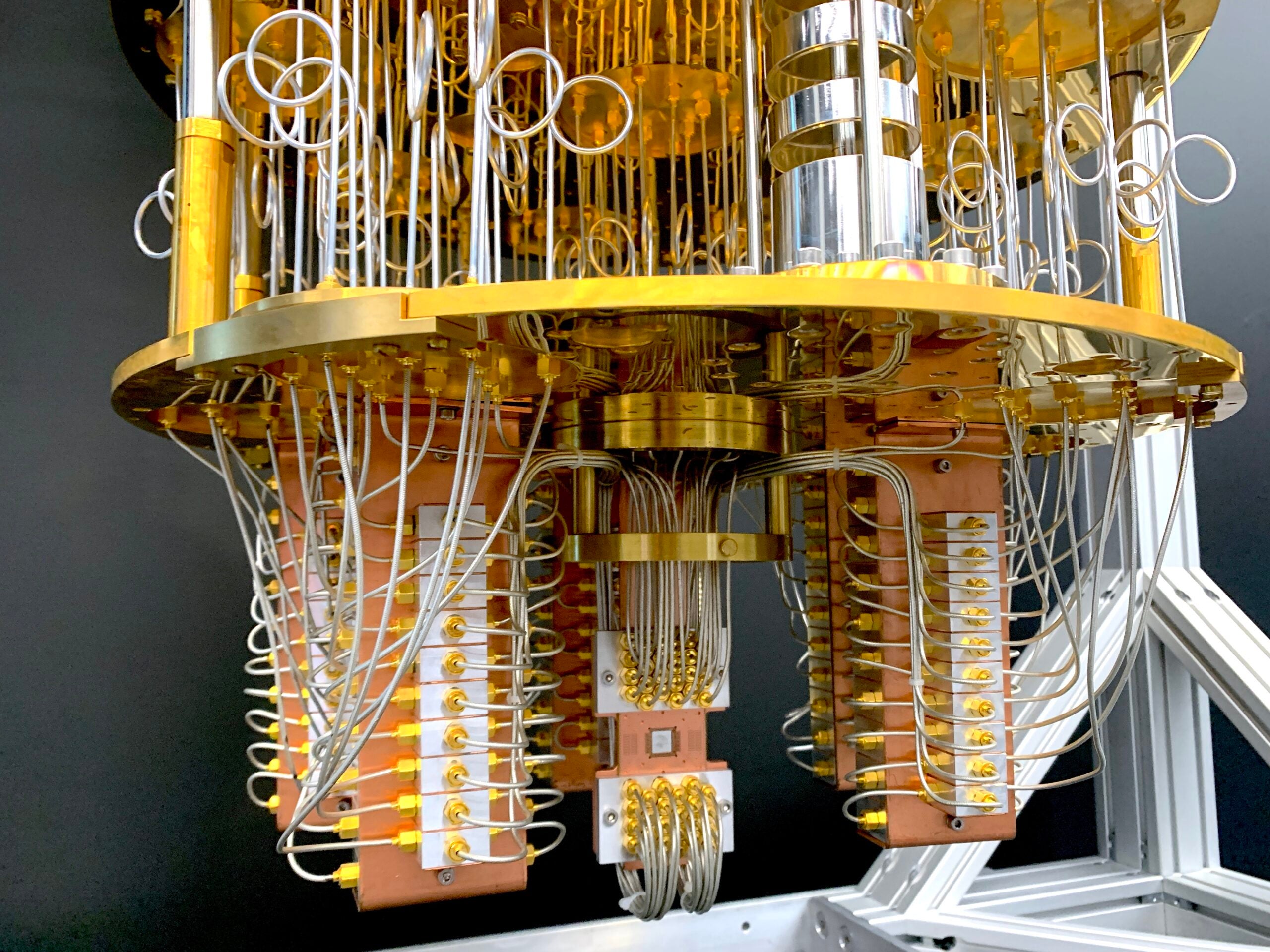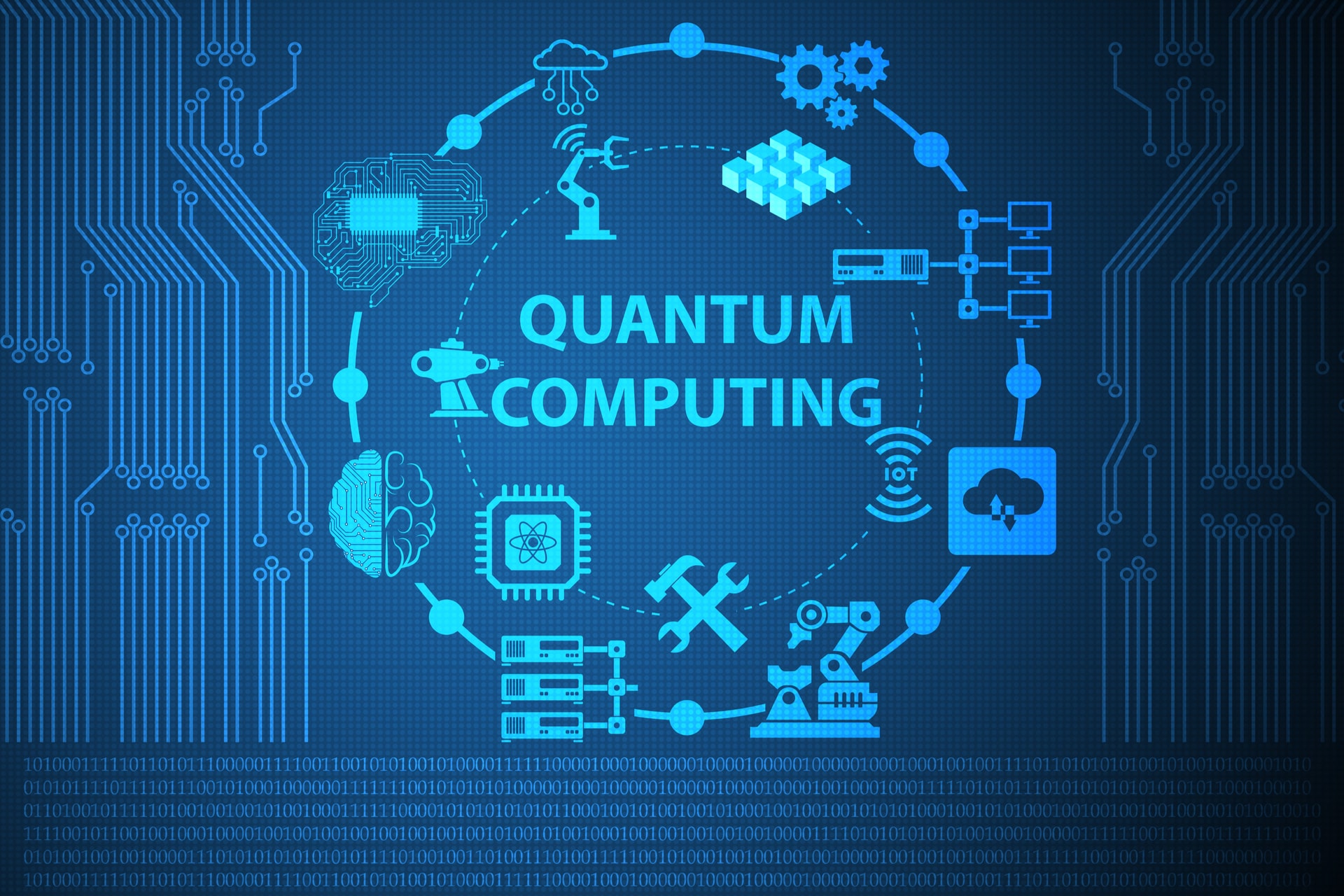Quantum Computing: A Leap into the Future of Computation
Related Articles: Quantum Computing: A Leap into the Future of Computation
- Best apps for productivity in 2025
- AI Camera Enhancements
- USB Type-C Charging
- Affordable 3D Printers for Beginners: A Comprehensive Guide
- Top-rated tech podcasts 2025
Introduction
With great pleasure, we will explore the intriguing topic related to Quantum Computing: A Leap into the Future of Computation. Let’s weave interesting information and offer fresh perspectives to the readers.
Table of Content
Video about Quantum Computing: A Leap into the Future of Computation
Quantum Computing: A Leap into the Future of Computation

The digital revolution has fundamentally reshaped our world, fueled by the relentless miniaturization of transistors and the ever-increasing power of classical computers. However, even the most advanced classical computers are facing their limits. Certain complex problems, such as simulating molecular interactions for drug discovery or breaking modern encryption, are simply intractable for them. This is where quantum computing steps in, promising a paradigm shift in computational power that could revolutionize various fields.
Understanding the Quantum Realm
To grasp the potential of quantum computing, we must first understand the fundamental principles of quantum mechanics. Unlike classical bits, which represent information as either 0 or 1, quantum bits, or qubits, leverage the principles of superposition and entanglement.
-
Superposition: A qubit can exist in a superposition, representing both 0 and 1 simultaneously. This is analogous to a coin spinning in the air – it’s neither heads nor tails until it lands. This allows quantum computers to explore multiple possibilities concurrently, drastically accelerating computations.
-
Entanglement: Multiple qubits can be entangled, meaning their fates are intertwined. Measuring the state of one entangled qubit instantly reveals the state of the others, regardless of the distance separating them. This interconnectedness allows for powerful parallel computations and the exploration of complex relationships.

These quantum phenomena are harnessed through various physical implementations of qubits, including:
-
Superconducting circuits: These utilize superconducting loops to represent qubits, cooled to extremely low temperatures near absolute zero. Companies like Google and IBM are heavily invested in this approach.

-
Trapped ions: Individual ions are trapped and manipulated using lasers, representing qubits through their energy levels. This method offers high fidelity but faces challenges in scalability.

Photonic qubits: Photons, particles of light, are used as qubits, leveraging their polarization or other properties. Photonic systems offer potential for easier scalability and interconnection.
-
Neutral atoms: Similar to trapped ions, neutral atoms are trapped and manipulated using lasers, offering a promising pathway for building large-scale quantum computers.
Quantum Algorithms: Beyond Classical Limits
The power of quantum computing lies not just in the hardware but also in the algorithms designed to exploit the unique properties of qubits. While classical algorithms operate sequentially, quantum algorithms can perform computations in parallel, leading to exponential speedups for specific problems.
Some of the most promising quantum algorithms include:
-
Shor’s Algorithm: This algorithm has the potential to break widely used encryption algorithms like RSA, which rely on the difficulty of factoring large numbers. This has significant implications for cybersecurity and data protection.
-
Grover’s Algorithm: This algorithm offers a quadratic speedup for searching unsorted databases. While not as dramatic as Shor’s algorithm, it still provides significant improvements for large datasets.
-
Quantum Simulation: Quantum computers can simulate quantum systems, such as molecules and materials, with unprecedented accuracy. This has enormous potential for drug discovery, materials science, and fundamental research.
-
Quantum Machine Learning: Quantum algorithms are being developed to enhance machine learning tasks, such as classification and optimization, potentially leading to more efficient and powerful AI systems.
Challenges and the Road Ahead
Despite the immense potential, quantum computing faces significant challenges:
-
Qubit coherence: Maintaining the delicate quantum states of qubits is extremely difficult. External noise and interactions with the environment can cause decoherence, leading to errors in computation.
-
Scalability: Building large-scale quantum computers with a sufficient number of high-fidelity qubits is a major engineering hurdle. The more qubits, the more complex the system becomes, and the greater the challenge in controlling and maintaining their quantum states.
-
Error correction: Quantum computers are inherently prone to errors. Developing robust error correction techniques is crucial for achieving reliable and fault-tolerant quantum computation.
-
Algorithm development: Developing efficient and practical quantum algorithms for a wide range of applications is an ongoing area of active research. Not all problems benefit from quantum speedups.
Despite these challenges, significant progress is being made. Research institutions, tech giants, and startups are investing heavily in quantum computing, pushing the boundaries of what’s possible. We are witnessing a rapid evolution of quantum hardware and software, with increasing qubit counts, improved coherence times, and the development of new quantum algorithms.
Applications and Impact
The potential applications of quantum computing are vast and transformative:
-
Drug discovery and materials science: Simulating molecular interactions will accelerate the design of new drugs and materials with desired properties.
-
Financial modeling: Quantum algorithms can optimize investment portfolios and manage risk more effectively.
-
Cryptography: While Shor’s algorithm poses a threat to existing encryption, it also paves the way for the development of quantum-resistant cryptography.
-
Artificial intelligence: Quantum machine learning can enhance AI algorithms, leading to more powerful and efficient AI systems.
-
Optimization problems: Quantum computers can tackle complex optimization problems in logistics, supply chain management, and traffic flow.
The Future of Quantum Computing
Quantum computing is still in its early stages, but its potential to reshape our world is undeniable. While a fully fault-tolerant, large-scale quantum computer is still years away, the progress made in recent years is remarkable. The race to build and harness the power of quantum computers is intensifying, with governments, industries, and academia collaborating to unlock the immense possibilities of this revolutionary technology. The future of computing is likely to be a hybrid one, with classical and quantum computers working together to solve the most challenging problems facing humanity. As the technology matures, we can expect to see a wave of innovation across various sectors, leading to breakthroughs that were previously unimaginable. The quantum era is dawning, and its impact will be profound and far-reaching.

Closure
Thus, we hope this article has provided valuable insights into Quantum Computing: A Leap into the Future of Computation. We appreciate your attention to our article. See you in our next article!